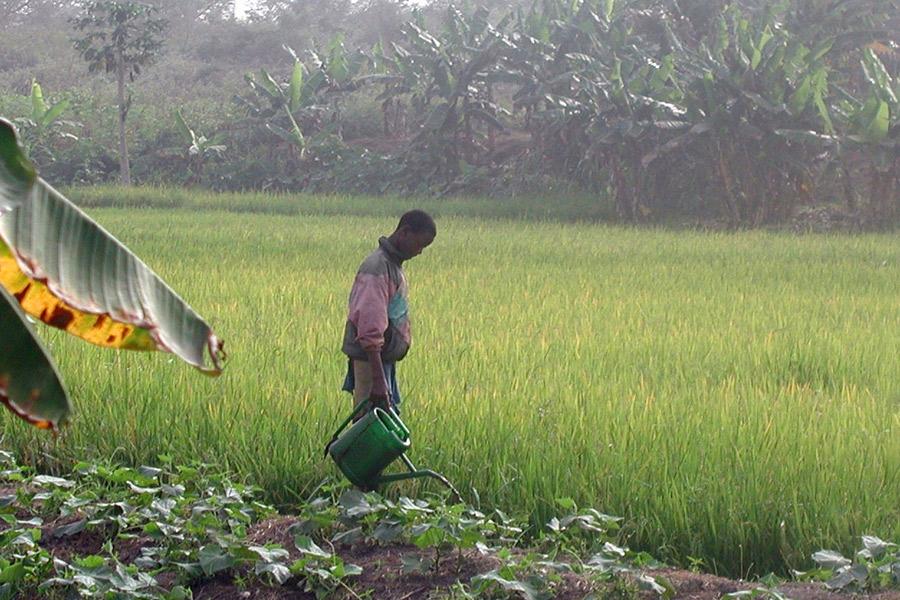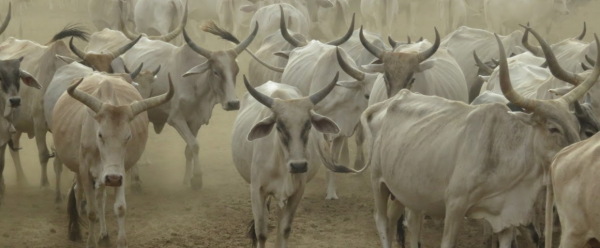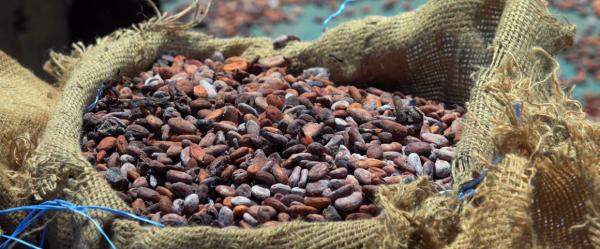Expert view 23 January 2026
- Home
- CIRAD news
- News
- Covid & food security | African agriculture resilient in face of crisis
Covid-19 and food security | How African agriculture could hold its own in the face of the crisis

With the Covid-19 pandemic and continued insecurity linked to terrorism or crop pest invasions (locusts, armyworms, etc), several African countries are facing a range of threats to food security. However, those along the coast of West Africa — Ivory Coast, Benin, Togo, etc —, along with southern Mali and Burkina Faso, are proving to be relatively resilient as regards the effects of the epidemic, and the health crisis will probably have a limited impact on their food production. There are several reasons for this.
Largely non-intensive crop farming with limited use of inputs
Firstly, those countries have a high potential to produce food crops such as cassava, plantain, yam and sorghum, which are generally grown non-intensively, with very limited use of fertilizers and pesticides. They have therefore not been affected by input supply issues. As for market gardening and maize growing, which require mineral fertilizers and pesticides, inputs are available from shops and producers' organizations.
Moreover, the current very low oil price has fostered a drop in the price of fertilizers in time for the second growing season in coastal countries in a few months, and probably even more so for the 2021/22 agricultural campaign.
Agricultural labour available on site
Producers can also count on the agricultural labour force that is still available in production zones despite the recent travel restrictions — curfews, blockades of certain towns. At the height of the season, agricultural labourers generally stay in their home region to plant, maintain and harvest crops. The only exception is cocoa production in Ivory Coast and Ghana, which uses workers from neighbouring countries.
The Covid-19 epidemic is also likely to have much less of an impact on labour availability and the wellbeing of rural households than malaria, dengue or HIV-AIDS [1]. The rural population is mostly young, and for the time being, the epidemic has mainly affected cities and a very small proportion of the population [2]. The number of workers on sick leave in rural areas has remained low.
Opportunities to change consumption patterns and crops grown
The current crisis in terms of health and international trade could also offer the food crop sector in West Africa opportunities to develop.
In 2018, 46% of the population in Africa lived in urban areas, according to FAO, and urban consumers are a major force for change. Those from the poor and middle classes could buy more local products — cereals (maize, rice and sorghum), cassava, yam or plantain banana — rather than imported rice and wheat, including that used to make bread, the price of which is likely to rise. With the fall in fuel and transport costs, roots, tubers and plantain, which are particularly heavy, will be more accessible.
Given the current supply difficulties — Morocco, for instance, has closed its borders and can no longer supply West African markets with onions and oranges —, those consumers will also have to buy more local fruit and vegetables. Provided those products are good quality, the wealthiest consumers may choose to buy less in the way of foodstuffs imported from Europe (frozen, canned or fresh food).
Moreover, some governments have decided to build up their emergency food stocks, primarily cereals, to cope with any possible hiccups on the global rice market in the short and medium term. Producers' organizations, for instance those in Benin, have recently been able to sell their remaining stocks from the 2019/20 harvest at an acceptable price.
Lastly, export product (cashew nuts, rubber, cotton, sesame, etc) sales prices have fallen sharply of late. In response to this drop in income, farmers have the option of increasing the share of their crop rotation system given over to food crops for the local market. For instance, this could mean replacing part of the area planted under cotton with maize or pulses [3].
However, it will be hard to modify these crop rotations rapidly, particularly for those farmers who have invested in tree crops. It will also be difficult to produce healthy, certified vegetables in agroecological systems for demanding customers used to buying imported processed or frozen foods.
Farmers' ability to benefit from these opportunities will depend on how long land and air transport restrictions last and above all on how quick they are to react. West African food crop value chains can become more competitive in relation to imported foods and boost these countries' food sovereignty, but this calls for appropriate public policy: research and development, agricultural advisory services, equipment subsidies, etc.
[1] According to UNAIDS, there were 430 000 adults with HIV-AIDS in Ivory Coast in 2018, some of whom lived in rural areas. In southern Benin, work times in rural households have fallen by 31%, despite the fact that most of the people infected have access to treatment.
[2] According to WHO figures, as of 15 May 2020, West Africa still had ten times fewer confirmed cases per million people than Europe, and often twenty times, depending on the country. In terms of the number of deaths, the difference was even more marked, since the population in Africa is young: fewer than 2.5 deaths per million people in West Africa, compared to European figures of between 95 (Germany) and 519 (Italy).
[3] Cotton fibre prices on the world market have fallen by 20% since January 2020, and cashew nut rates by 36%. In Mali, the cotton value chain has set the cottonseed purchasing price at 200 CFA francs/kg for the 2020/21 season, compared to 275 CFA francs last year (- 27%). (Sources: FAO, UN, World Bank).



























